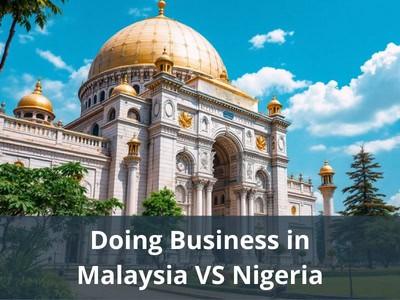Ready to Expand into India? Choose 3E Accounting Today!
Stay Secure, Stay Successful With 3E Accounting Services

Here’s a quick overview of the key differences for easy reference.
| Factor | Malaysia | Nigeria |
|---|---|---|
| Business Environment | Stable, pro-investment policies | High growth potential, but regulatory challenges |
| Corporate Tax Rate | 24% | 30% |
| Capital Gains Tax | Applicable in specific cases | Applicable, varies by asset class |
| Ease of Incorporation | Digital registration via SSM | Manual filings with longer processing times |
| Business Costs | Low operational and living costs | Moderate costs with inflation risks |
| Market Access | Strong access via ASEAN trade pacts | Large West African market via ECOWAS |

Selecting the right partner is crucial when it comes to starting a business in Malaysia. At 3E Accounting, we offer a comprehensive range of solutions designed to simplify the entire process of company incorporation in Malaysia. From ensuring compliance with local regulations to providing expert guidance tailored to your specific needs, we make the journey seamless.
For entrepreneurs looking to navigate Malaysia company registration or explore company setup in Malaysia, our team provides unmatched expertise and support. Additionally, our company incorporation services are tailored to help you succeed in the competitive business environment.
With a deep understanding of the region’s business landscape, we also provide resources for setting up businesses in Malaysia, ensuring that every step is clear and efficient. Whether you need assistance with corporate secretarial or company secretary services, we are here to help.
To explore our services or discuss your business needs, contact 3E Accounting. With our strong presence in Malaysia and a proven track record, we are your trusted partner for success in Asia.
Stay Secure, Stay Successful With 3E Accounting Services
Answer: Malaysia is generally more startup-friendly due to lower setup costs, faster incorporation, and access to resources like this guide to starting a business in Malaysia.
Answer: Malaysia’s corporate tax rate is 24%, while Nigeria imposes a 30% rate plus other sectoral levies. For more on Malaysian taxation, see this Malaysia company registration guide.
Answer: Malaysia offers streamlined online registration via SSM and dedicated company incorporation services. Nigeria’s process involves more manual steps.
Answer: Use this business setup guide for Malaysia to understand requirements, compliance, and planning.
Answer: Malaysia offers more stable operational costs, while Nigeria may face price volatility due to inflation and infrastructure constraints.
Answer: Malaysia connects easily with Asia-Pacific through ASEAN. You can explore our services to expand regionally from Malaysia.
Answer: 3E Accounting provides full incorporation, secretarial, and compliance support for foreign and local entrepreneurs.
Answer: You can easily contact 3E Accounting for tailored advice and registration support.
Abigail Yu
Author
Abigail Yu oversees executive leadership at 3E Accounting Group, leading operations, IT solutions, public relations, and digital marketing to drive business success. She holds an honors degree in Communication and New Media from the National University of Singapore and is highly skilled in crisis management, financial communication, and corporate communications.

